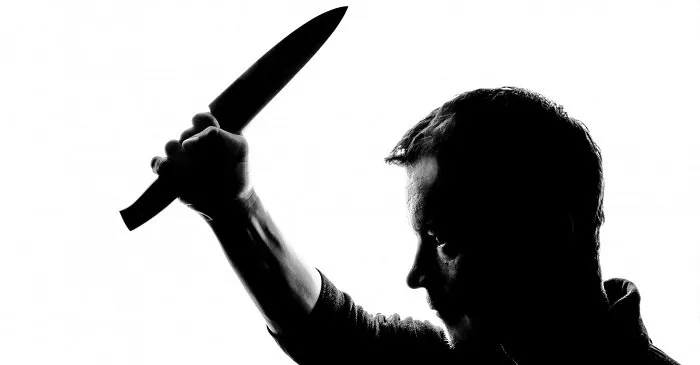
As the United States continues to experience sensational mass shootings and many Americans call for gun control, the London is dealing with its own rash of violent crime, mostly in the form of knife attacks.
Countless memes circulating on the internet have pointed out that despite the British government’s harsh gun laws, criminals have still found ways to commit violence and murder. Despite this, the government is clamping down further, attempting to restrict knife possession even more than it already has in its fruitless attempts to stop the wave of crime (in 2014, for example, a teenager was restricted from buying spoons, a measure that has apparently failed to reduce crime).
But there is more to the story, and what’s missing from the mainstream conversation further discredits the actions of the British government.
This week, a leaked report allegedly revealed that the uptick in knife crime over the last two years is largely a result of police budget cuts to London police, which have led to a reduction in the number of cops on the streets. But reading between the lines of media reports reveals a more systemic reason why the violence has become so severe. As the Guardian noted:
“Between 2014-15 and 2016-17, killings where either the victim or suspect were involved in using or dealing illegal drugs increased from 50% to 57%, according to Home Office figures.”
An op-ed published in February by the same outlet acknowledged:
“In the capital, Metropolitan police files show that half of all deaths involving knives are directly linked to the drugs trade and gang turf wars.”
The Independent referred to the ongoing violence as “a spate of murders as drugs drive turf wars between gangs.”
This problem has been years in the making. In 2017, former undercover narcotics officer Neil Woods came forward to discuss how the war on drugs actually exacerbated the problem. Woods, who infiltrated gangs and sold drugs, told the Independent:
“[I]t was because of me that organised crime was getting nasty. I was developing the tactics. I put dealers in prison for over 1000 years and I only disrupted the heroin supply for two hours. Policing can’t affect the demand so policing drugs is completely futile. I can’t emphasise that enough. More people die and it gets more violent. Drugs have got stronger and cheaper and more varied since the Misuse of Drugs Act 1971.”
Indeed, despite restrictive laws banning the possession and sale of drugs, the demand for those drugs does not disappear and only leads to the growth of a black market where organized crime thrives. The global war on drugs has contributed to a global rise in violence, as well as the growth of gangs – just as alcohol prohibition in the 1920s empowered gangsters.
In 2013, Harvard University professor Jeffrey Miron, who has written extensively on the consequences of prohibition, discussed this dynamic in an interview with Der Spiegel. He said:
“Prohibition leads to violence. By making a black market inevitable, you generate violence because the conflicts between the parties involved in the drug trade can’t be solved by legal means within the judicial system. They are forced into a twilight world in which they have to shoot each other instead of hiring lawyers and taking the matter to court.”
Miron continued:
“There are studies that show the level of violence is reduced when the state leaves the drug trade alone, the reason being that the drug dealers have fewer disputes. The latest evidence from Mexico confirms that. Of course there has been drug-related violence there for a long time. But the violence didn’t escalate and increase sharply in scale until the president, Felipe Calderón, declared the big war on drugs in 2006. We have calculated that the murder rate in the US could fall by around 25 percent if drugs were legal.”
As he simply stated, “[p]rohibition certainly isn’t the solution.”
It’s also no surprise, then, that despite the U.K.’s prohibitive gun laws, which are some of the toughest in the world, gun crime is also on the rise.
Rather than enacting even more police measures and legislative bans, it’s possible the solution may actually lie with a reduction in invasive government policy, which, evidently, often worsens the problem.
My Links:
Patreon: https://www.patreon.com/CareyWedler
Anti-Media: http://theantimedia.org/author/careyw1/
Youtube: https://www.youtube.com/channel/UCs84giQmEVI8NXXg78Fvk2g
Instagram: https://www.instagram.com/careywedler
Facebook: https://www.facebook.com/CareyWedler/
Twitter: https://twitter.com/careywedler